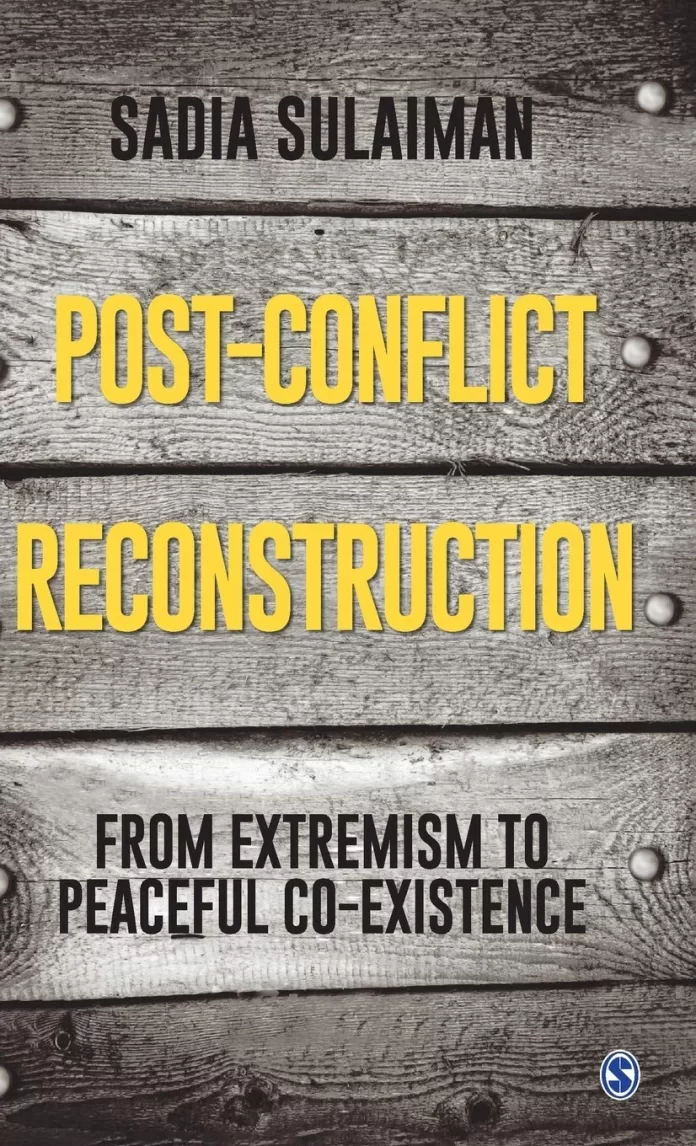The debate on the developments in post-conflict scenarios and the inception of multilayered reconstruction efforts has gained momentous importance in the post-9/11 international system due to the global rise of non-traditional security threats. An overwhelming wave of literature has appeared from different corners of the world on the changing patterns of global security dynamics under the rise of intrastate conflicts, resulting in the growth of widespread violence in the world. Authors from different backgrounds tried to provide a logical understanding of different countries suffering from the issues of violence in their internal state structures. Their ferocious societal growth under diverse ideological pressures generally causes the spread of anti-state sentiments challenging the legitimate state structures through various illegitimate pretexts.
The mainstream academic literature unfolding the causes, evolutions, and solutions to such internal state crises have been examined by different authors where the scholarly approach of a Pakistan-based author, Sadia Sulaiman, cannot be marginalized. In other words, the intellectual discussion on the states’ countering violent extremism policies cannot be completed without understanding a recently published intellectual survey by Sadia Sulaiman. She is professionally attached to an Islamabad-based university and completed her doctorate from the prestigious University of Singapore. Apart from serving at various international and national intellectual forums, she is a Fulbright Fellow with exceptional scholarly insights into issues of counterterrorism, post-conflict reconstruction, and countering violent extremism.
Her research work, consisting of a wide range of research papers and some books contain both commendable and impactful features in Pakistan’s academic community. The national intellectual contribution of Sadia Sulaiman has enabled her to cultivate a respectable position in the global literary circles debating the worldwide constructive engagements of great powers.
The book under review presents an exceptional account of Sulaiman’s comparative analysis concerning the indigenous crisis of Afghanistan, Iraq, Yemen, Pakistan, Nigeria, and Libya. Its central theme is divided into seven different chapters, in addition to the comprehensive introduction and conclusion explaining Sulaiman’s position on the major post-conflict reconstructions in certain countries involved in the internal security crisis. The first chapter initiates the debate from the conceptual understanding of the post-conflict scenarios where state governments are suffering from the issues of state fragility and violent extremism.
The subsequent arguments discussed the cases of six states in different chapters respectively, while demonstrating an inseparable connection between state fragility and religious extremism. It provides a conceptual description of the book’s central argument, concentrating on three core ideas such as post-conflict reconstruction, state fragility, and extremism. The conceptual discussion in the initial pages emphasizes a delicate link between the three concepts mentioned in the book, which highlights the states’ efforts to overcome the menace of extremism. The efforts to prevent the multifaceted rise of societal extremism are directly linked with states’ vision of peaceful co-existence, parallel to making it essential for formal decision-making authorities to overcome the threats of political fragmentation.
Thus, the book has identified core concepts contributing to the states’ fragility due to the consistently evolving security dilemma, dysfunctional economy, inefficient institutional functions and legitimacy crisis, and inability to manage change and space for external inference (p. 04).
The examination of these crises led the book’s author to investigate the historical contexts and socio-political dynamics of states engulfed with perpetual challenges of instability. The author’s structured arguments explaining the genesis of the crisis in six major states enhance the legitimacy of the author’s views in the book, which validates its exceptional way of creating the argument’s theoretical depth and empirical precision.The conceptually logical and factually convincing arguments under different contexts provide the book with a comprehensive examination of a complex interaction of three interrelated challenges to the developing states.
These challenges comprise growing fanatical ideologies, increasing states’ fragility, and launching peace-building programs within states. In this way, the adoption of an impartial and pragmatic approach makes her work human-centred due to its concentration on the voices and grievances of marginalized populations living under varying political systems.
The book deserves profound appreciation due to its timely and deeply insightful nature, which bridged theory and its appropriate application in a logical manner, which rarely appears in literature. By highlighting both the structural challenges and the human dimensions of post-conflict recovery, Sulaiman not only enriches academic discourse but also offers meaningful pathways toward sustainable co-existence. Sulaiman underscores the importance of swift rehabilitation and inclusive governance to foster peaceful co-existence.
Her insights into the specific challenges faced by each case study country provide valuable perspectives for policymakers and scholars located in diverse regions. Her policy recommendations, such as security sector reforms and equitable resource distribution, are practical yet grounded in the complexities of each case. A critical examination of the book suggests that the author could have explored the non-religious basis of extremism under varying ethnic contestations and tribal conflicts where the African nations are prime examples. Thus, the book’s primary focus has sidelined other critical drivers of societal extremism, causing intrastate conflicts rooted in multiple non-religious contexts, such as ethnic differences, weak state institutions, and structural economic grievances.





